Introduction – Why Do We Need Friends
Whether you are a classic introvert or sit somewhere in a middle we all need human connection. Studies show that people are increasingly feeling lonelier. This was even before the start of the pandemic. Loneliness is not just a sad feeling. It has severe health implications leading to strokes and heart issues and is likely to kill a person in the same way as smoking or eating unhealthy food. Prolonged social isolation is the equivalent of smoking 15 cigarettes a day and can increase death by up to 46%. Loneliness also determines how long we recover from illness and resist infections.
Yuval Noah Harari in his book “Sapiens” hypothesizes that humans evolved into our current form partly because of our ability to organize large groups to work on complex tasks. Despite the heightened focus on the individual in modern Western society, our social connections remain key to everything from the performance at work to happy living.
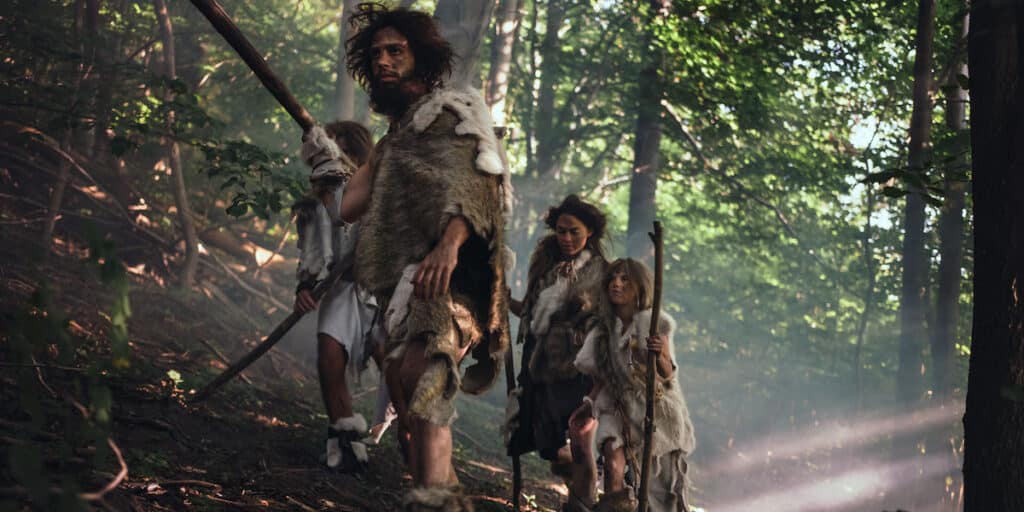
Humans are social creatures. We are dependent on others for survival from the early days of our existence. Defending against wild animals, foraging for food and raising children have been done while working together with the tribe members.
It may not be apparent in modern society with a focus on self-reliance how incredibly dependent are on other people’s work and support. Stuff around your house was made by someone’s hands. Shelves in the supermarket are fueled by knowledgeable farmers, even the device you read this on was helped to be created by thousands of people.
Apart from being reliant on others to survive we also have an innate need to belong. It is hardwired in our DNA to be social creatures. This feeling of belonging also is directly linked to well-being. In an 80-year-long study of adult life by Harvard University relationships with family, friends and social circles are a major contributor to happiness and health.
How Many Friends Should You Have?
The question of social connections optimal for humans was answered by anthropologist and evolutionary psychologist Robin Dunbar. In his research, Dunbar compared the sizes of primates’ (our distant cousins) brains and the number of members in their respective social groups. Based on the homo sapiens’ brain size the magic number is 148 connections (commonly rounded to 150).
This figure however accounts for all of the connections in the social network, not just the closest friends. The model of connections is layered like an onion with 4-5 friends in immediate proximity, another 10-15 people that you know well but do not consider close friends, and so on. This model attracted some criticism but it is a good estimate of what you should be aiming for in your social networking.
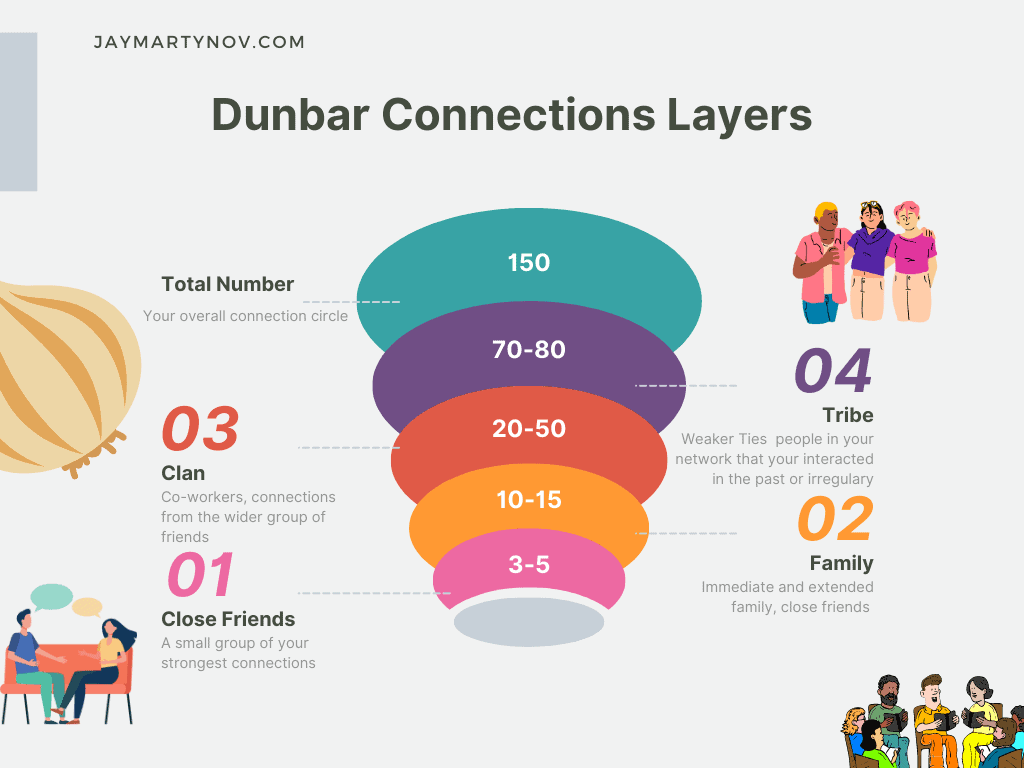
Based on my personal experience and observations this number may fluctuate depending on your personality type. Outgoing extrovert types may have a different distribution of connections in their “onion” levels when compared to introvert types. You can also try the Enneagram subtype test that will indicate if you are a social, one-on-one or self-preservation type. The number of your optimal connections will differ depending on your subtype.
It is worth noting that this research suggests that there is a limit to the number of close friendships at which point it is no longer beneficial to well-being. It seems logical to invest time in the existing friendships once you made a few good connections.
Why It Is Harder To Make Friends As You Get Older
Through my experience as a social events organizer, I learned that people often find that their friend network starts shrinking as their adult life progresses. Friendships formed during childhood and studying weaken as people get busy with jobs, marriages and kids.
It takes about 50 hours on average to form a casual friendship and over 200 hours to become close friends. Friendship formation also requires an environment where people can engage in bonding activities. As we grow older opportunities and time availability for friendship reduce unless we make an effort. This is often one of the main reasons people join social networks as it offers opportunities in an optimal environment for forming friendships.
There is also a third element that needs to be taken into the equation – your mindset. As we get older we become less flexible in our preferences. As a result, we often are reluctant to go out to unfamiliar places. It also becomes harder to get out of the comfort zone to meet new people and socialise without feeling anxious.
The way to address the mindset challenges is to start slow, find the right events for your personality and avoid common mistakes. I will cover specific steps further in this guide.
Three Best Social Networking Platforms
Social apps by themselves are nothing without their users. While they can have many features and sleek designs they need to be adopted by a large audience to benefit from the network effect. How useful would Facebook be if it did not have any of your friends on it?
Because of that, there is only a handful of long-running social platforms that lead this space. There may be a disruptor underdog company one day but until then we will focus on the established social network players.
In addition to a large user base we also want to use an app that has group events rather than one-on-one meetups like Bumble BFF mode. Group activities allow you to meet a lot of people in one setting while doing something fun.
As an added bonus you never get stuck in a conversation that puts you to sleep. In this post we will cover three large worldwide communities and share some ideas on how to interact with them so you will become a meetup ninja in no time!
Enter the beast – Meetup.com
Without further ado let’s start with Meetup.com. The creator of this platform was inspired by meeting his neighbours in New York City for the first time after the 9/11 events. It speaks volumes that the initial funding was raised by friends and family. Its original idea was to bring people with a common interest who did not know each other together.
Since then the platform has grown internationally and now you can find meetup groups anywhere around the world. Because Meetup.com had an early starter advantage they are the most popular platform showing up on top of Google search results for events.
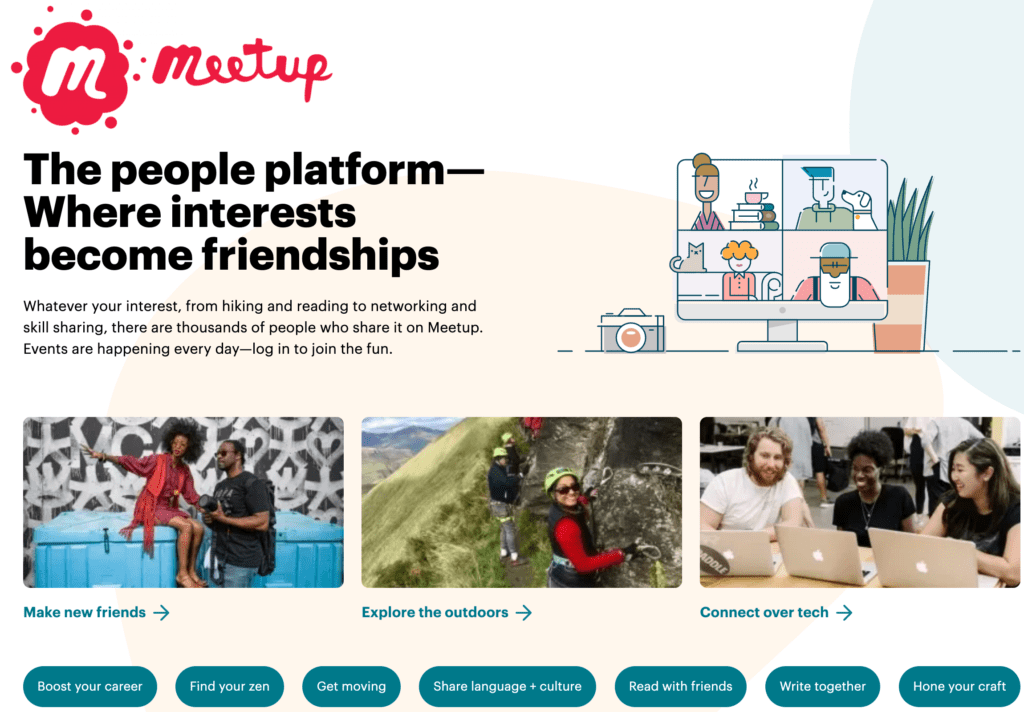
Meetup communities are organised by groups with a common shared theme like outdoor adventures or meditation clubs. The organisers create events that are based on the group theme that are advertised to group members.
The events can be anything from hiking trips to book discussions. The best thing about the Meetup.com site is that it is free to use for its members. There may be however fees introduced by the event organisers since they are the ones that have to pay monthly or six monthly subscription fees.
The interface of the app on the website is very intuitive. You will be able to find groups that are run by enthusiasts wanting to build communities but there are groups that are run by professional organisers making a living on the platform. Meetup.com is one of the easiest platforms to start if you want to run your events.
My suggestion though is to start with attending a few meetups first before you decide to become an organiser. The biggest issue with Meetup is that it became increasingly commercialised with fees forcing organisers to adopt a business mindset. In my view that affected the communal spirit of Meetup as organisers have to pay a hefty $300 subscription fee on their basic plan.
Travellers Den – Couchsurfing.com
Couchsurfing.com was founded to help travellers find homestay and meet other adventurers or friendly locals. Everyone has a couch that a fellow traveller can crash on, right? Because of its name, Couchsurfing.com is often associated with free accommodation but the opposite is true.
A recently registered account with no reviews looking for a stay is usually a red flag. Couchsurfing is about building connections and sharing experiences rather than approaching this as transactional.
In its essence, Couchsurfing is a community of fellow travellers that is built around helping other travellers. The Couchsurfing website has features such as hangouts and events where you can join a group to explore places together, go on a trip or attend a meetup.
Because of the nature of the Couchsurfing website, the majority of the community is transient but this is where you can form friendships with people around the world.
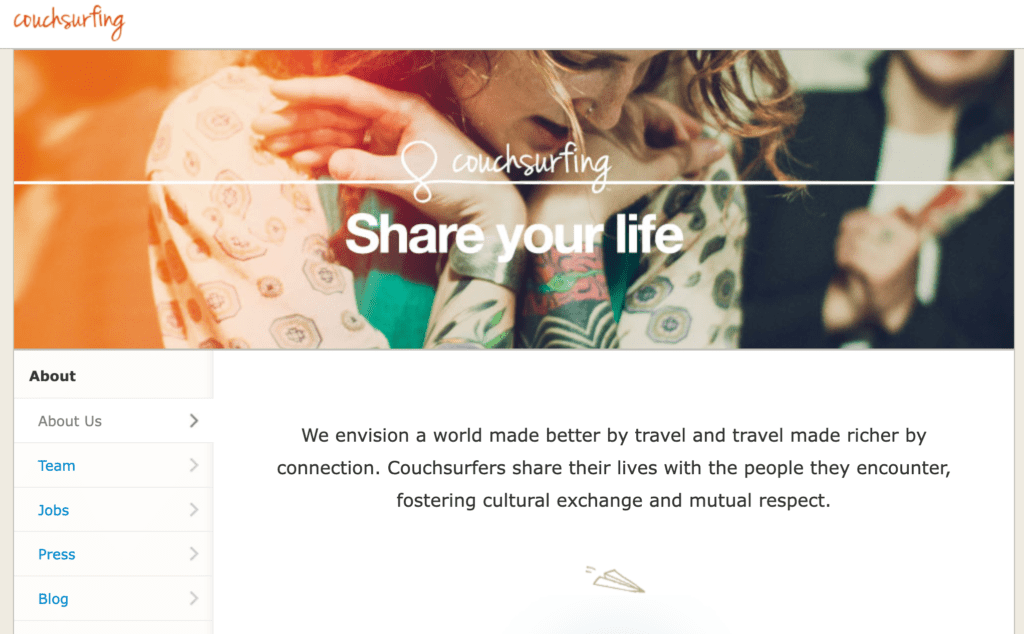
I had a late start with hosting on Couchsurfing but out of 2 people staying at my place one moved to my city permanently a year later and we became good friends. The events on Couchsurfing are usually social activities like BBQ at the beach or drinks at a pub.
Up until recently, Couchsurfing was completely free true to its altruistic ideals, making money from voluntary profile verifications and ads. After the pandemic, the platform lost by some estimates about 90% of its user population and became a paid service. While ~20AUD fee is a relatively small price for being a part of the community without its former user base size it is no longer a recommended social platform.
It is also not user-friendly for virtual meetups given its original purpose of meeting people in real life. Overall Couchsurfing.com is good for meeting new international friends and expanding your travel network.
Not Only For Expats – InterNations.com Community
I was introduced to InterNations.com by a friend many years ago but I only realised its true potential in the last few years. InterNations was formed in 2007 and it is relatively new compared to other social networks. It started in Europe with the idea of connecting expatriates living overseas.
This however should not stop you from exploring InterNations if you are local. I met plenty of people who never left their home country attending the events as it is a welcoming and inclusive community.
InterNations is uniquely different from the other two platforms. It has a well-developed website and an app that caters to both in-person and virtual meetups. This was particularly helpful during pandemics when our ability to move about was limited.
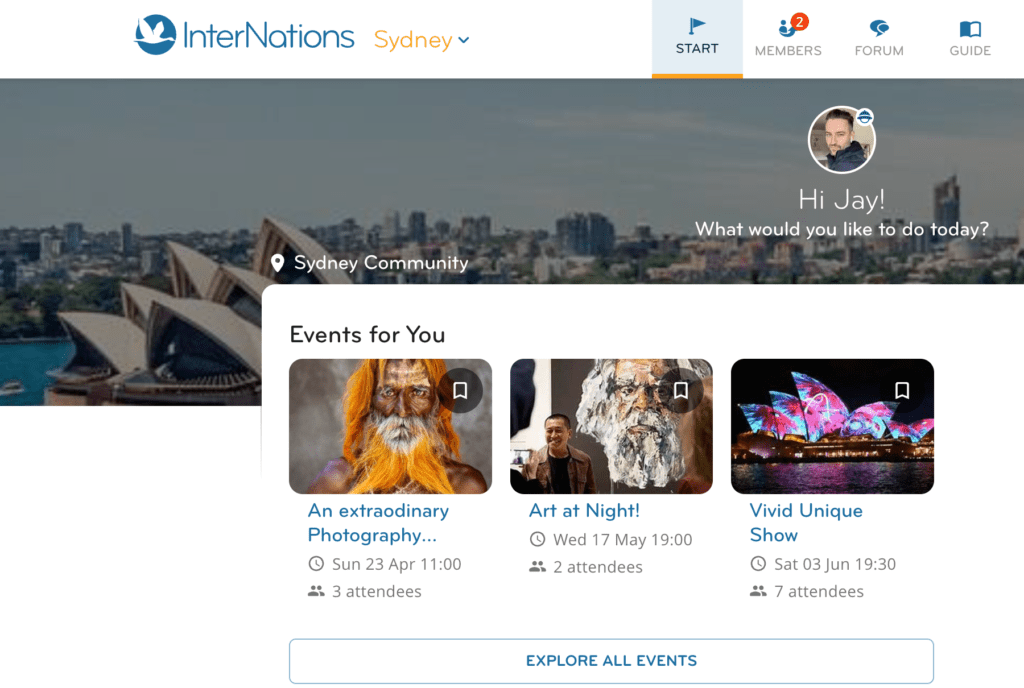
During this time InterNations ran many virtual events ranging from career development to meeting other expats worldwide. When it comes to membership fees InterNations is a slightly more complicated ordeal.
To begin with, there are two different types of events. There are official events organised by InterNations and events run by community organisers also called consuls. You can join InterNations for free but with that level of membership, you will not be able to see the details of consul-organised events. You will also need to pay a one-off fee to attend official InterNations events.
With that said, the membership fee gives you full access to all events on the platform, including virtual events outside of your home location. What I like about InterNations is that it is a close-knit community of people with the shared background of being expats. Members are likely to form long-lasting friendships because they will be meeting the same people at the events.
There is also a wide variety of events on the platform. At the moment of writing these include arts, music, hiking and singles events with some unique examples like content creators’ meetups and stargazing. There are also your usual suspects like dinner parties and drinks at local bars.
InterNations encourages ex-pats to run their own events. They provide educational articles on how to run events and email support. InternNations also reward organisers by waiving membership fees if they run events regularly. I am currently a consul with InterNations where I run one or two events a month for. Compared to the other two platforms I feel that there is more support for newcomers and organisers.
I compiled a list of pros and cons for the three platforms discussed earlier to decide which one is right for you
| Platform | Meetup.com | CouchSurfing | InternNations |
| Type of events | A huge number of events in many categories | Primarily social hangouts and exploring new areas | A large number of events including activities and social meetups |
| Cost | Free membership however organisers may charge a fee | Basic membership is free however to see community events membership is required ~$100 AUD | Basic membership is free however to see community events a membership is required ~$100 AUD |
| User Friendly | Great responsive app and website, easy to navigate | The app interface is not designed for organised events and is more suited for finding spontaneous groups hangouts | The website is intuitive but the app is slow at times. |
| Community size and typical users | A large community of users from different background | Membership was reduced significantly post Covid and after fee introduction. Mainly travellers and local hosts | Medium size community of professionals |
Are There Any Other Social Apps Worht Exploring?
Using Pareto logic you want to spend 20% of your effort to achieve 80% of the results. Unfortunately, the number of users on the alternative services in the same format as the three platforms we discussed earlier in my city is small. Because of this reason, they are my three favourite social networking platforms making the rest.
You may want to explore other platforms if they do not look like a scene from a Western with tumbleweeds rolling across a ghost town in your city. Alternatively, there are other apps and websites that work differently.
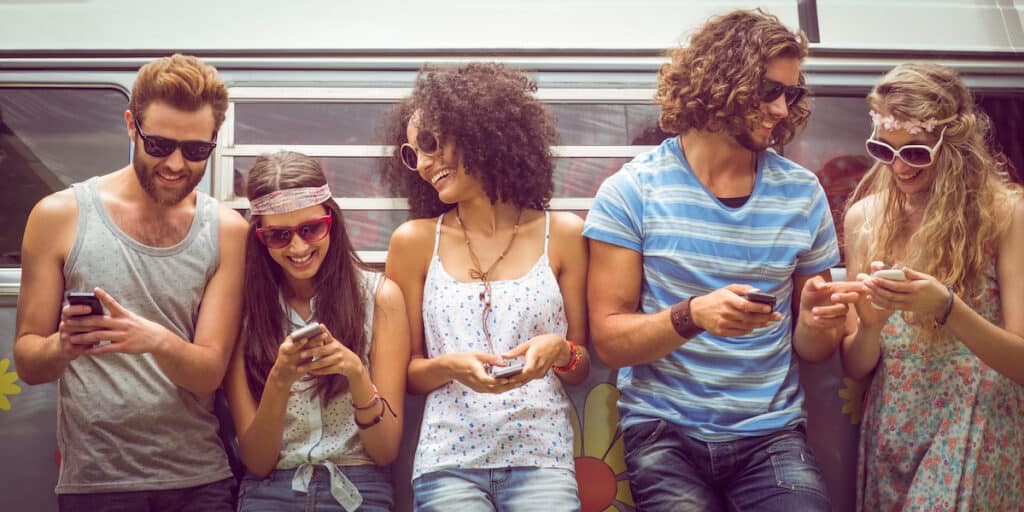
There are apps focused on one-to-one meetups like Vita or Bumble BFF or platforms focused on specific demographics e.g. female-only or runners meetups. Different format services or interest groups on Facebook or Reddit may be a better fit for your friendship-forming style. Share your favourite platform that you want me to review in the comments section.
How To Meet New People Using Technology
In the next section, I will cover how to choose the right event for you, and what to do before, during and after events. These steps will help you to start the social events journey and save you from common mistakes.
Choosing The Right Event
The type of events that you join matters. From my own experience backed by research events where you get to do things with other people whether playing games or joining in activities like walking or kayaking create authentic connections. Events like drinking in a pub are fun too however they do not necessarily prequalify they may not have people with the same interest in having a broader range of people attending.
Spend a bit of time to think what type of events you would like to attend. If you are into sports maybe it is a tennis match or a volleyball game. For the culturally inclined art gallery, a music gig or theatre play is a great option. Perhaps you always wanted to learn Latin dances like Salsa or Bachata.
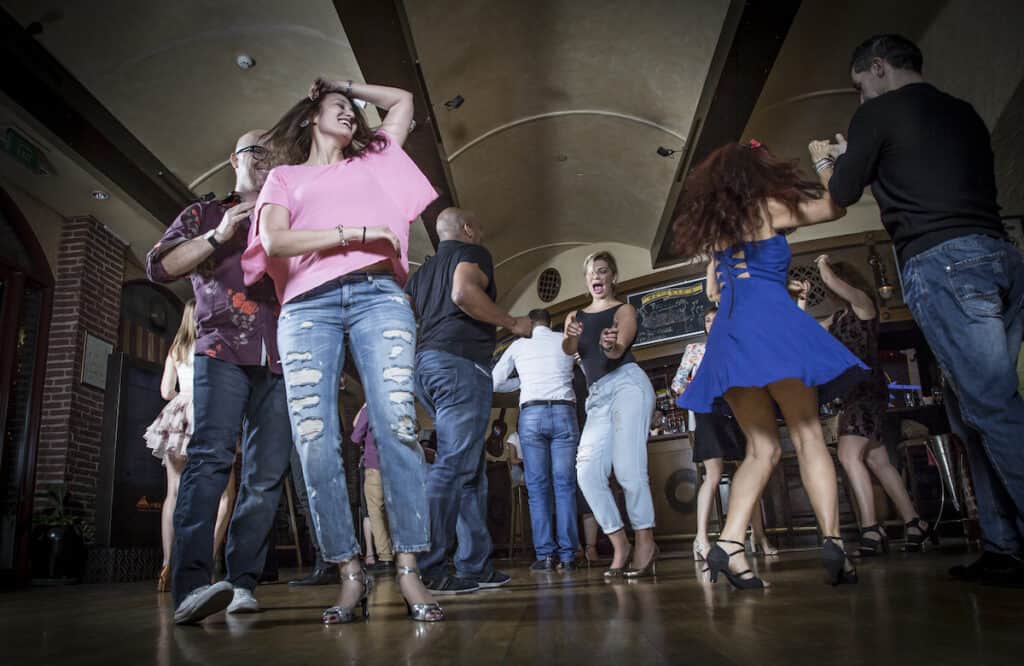
Also, consider how much spare time you usually have. Joining events can be time and energy-consuming. When you are just starting out try one event a month or a fortnight. If you are starting out joining a large event could be a good option to gauge the crowd and group dynamics.
As time progresses you will find your preferences. I like small to attend and organise small events because they create a more conducive environment for building human connections. You should be aiming to join events where you are likely to meet like-minded people and have an opportunity to do something together.
How Often To Go To The Events
I personally like to attend events and I have the energy to socialize and also get enough rest before work. Because of this I normally attend events on weekends for a rare exception where it is something like a movie I want to see or a special event that is only available midweek.
You can try to go to as many events as you can in the beginning and then taper down basing availability and energy levels. My other suggestion would be to stay consistent. I find that people often build friendships by attending the same events and running into each other. It will give you a sense of belonging with a group, learn about other people and form strong connections.
What To Do Before An Event
Read the description of the event and instructions carefully before registering. Some events will require you to buy a ticket for a paid event in advance. Tickets are often sold out fast if it is a popular event and you may miss out. It will also lock in your commitment and you will be unlikely to ditch the event.
Figure out how long it will take you to get to the place to allow yourself enough time to get to the venue. Late arrival will impact your and others’ experience. In some cases, you may not be able to join late or you make the whole group wait for you. Let the organiser know in advance if you are running late.
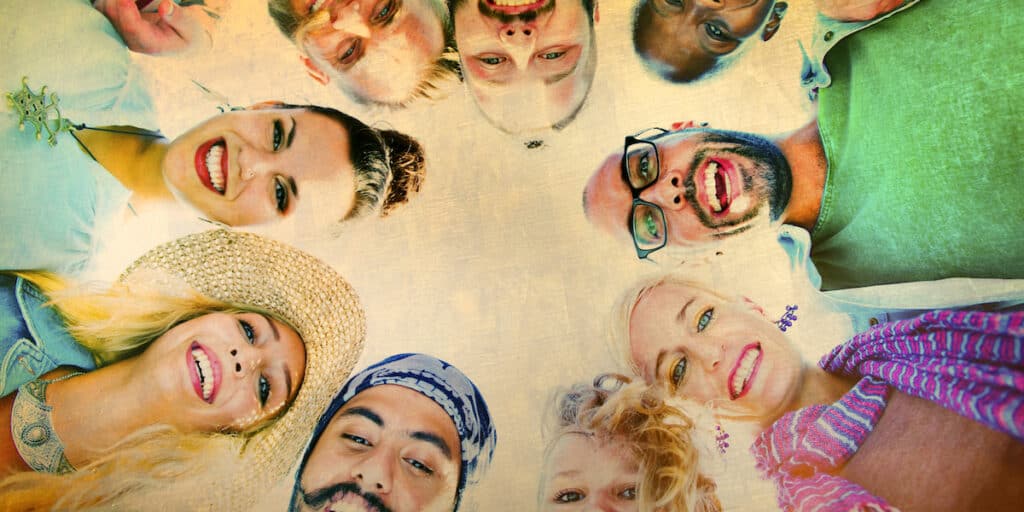
Update your RSVP if you are not able to attend as early as possible. This is especially important for small group events with limited attendee numbers. By booking a spot and not showing up you take an opportunity from someone else who may be wanting to attend the same event.
It also creates a negative perception between the organiser and the community if a no-show becomes a regular occurrence. Organisers on Meetup.com regularly ban users from the group after three no-shows.
Finally, if you see a fully booked event that you would like to attend message the organiser. They may have an extra spot and agree for an additional participant to join. I would always say yes to these requests as an organiser.
What To Do At The Event
Introduce yourself. And do not worry if you can remember the person’s name. Everybody is bad at remembering names. If you are attending one of the large events they often give away stickers ready that you can stop on your shirt. Another trick for you is to when you have any conversation use a person’s name between three to five times to make it stick.
Get involved. Remember the main reason for you to be at the event is to get to know other people and form a connection. If it’s drinking at the bar make sure you move around. If it’s a hike walk with different partners as you go further.
This may feel awkward at first but it is expected by other people. Either find a gap in a conversation when it feels natural to speak with someone else or simply say “It was nice meeting you. I’m just going to go around and meet other people. We will catch up later.”
Start with small talk. The weather, weekend plans, and reasons for joining a meetup are good warm-up choices. While sharing stories about your life is important, it is easier, to begin with neutral common ground topics. Once you build your rapport you can share something more personal. Vulnerability takes courage but it’s an effort that pays off with authentic connections.

Learn to read social cues. Not everyone in the room is an extrovert. Some people will find it challenging to speak with complete strangers. If you see someone who doesn’t have anyone next to them walk up to them and start talking.
Also if you spend a bit of time chatting with someone make sure that they actually enjoy the conversation. Pay attention to body language or cues like a person may be turning the body away or mentioning that they need to be somewhere.
Exchange the details. The three platforms mentioned earlier have inbuilt messaging but members may not be checking it often. Ask a person at the event for their preferred details – phone number, Instagram or messenger so you can message them after the event.
Let people know that you are leaving. Before you head out say goodbye to people you met and wanted to be in touch with. Also don’t forget to thank the organizer. They are the social glue between the participants.
What To Do After The Event
Get in touch. Reach out to people that you enjoy chatting with. Thank them for the interaction, mention something you enjoyed talking about and offer a coffee catch-up if you really want to connect.
The social network we build is similar to the neural connections of our brains. Just like neurons that fire together wire together, the people with who we spend the most time doing an activity become our friends. The bond of old friendships strengthens as our relationship progresses through life.
The rule “ use it or lose it” applies equally to neural links and friendships. Not staying in touch with closest friends weakens the bond to the point that friends become somebody that you used to know as the famous song goes.
Leave feedback to the organiser. Sharing constructive feedback and thanking people for their efforts is a great way to encourage someone and help them grow. Organisers that I met always looking for ways to improve their game. Whether it’s trying new venues, and activities or continuing a good trend will benefit both the community and you.
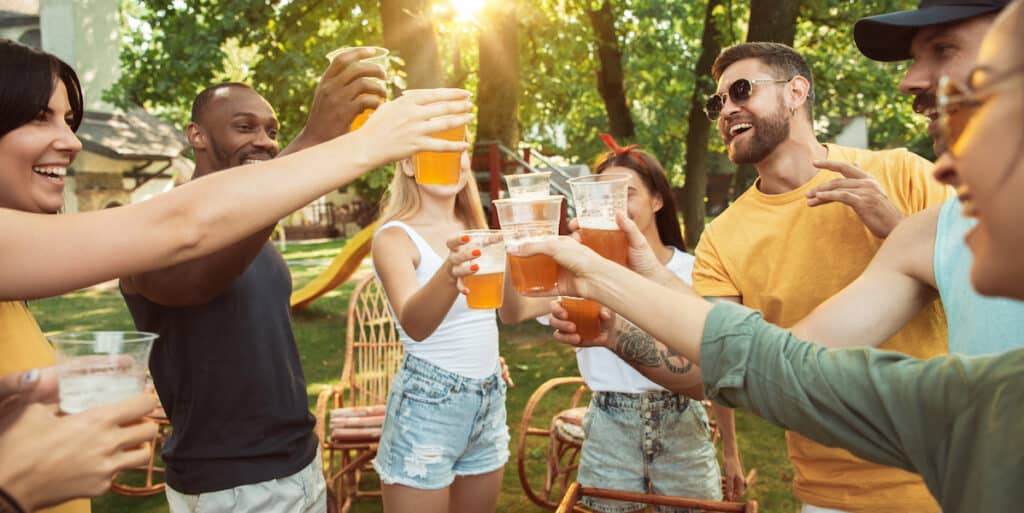
Lastly do not forget to take the name tag off your jacket. There have been a number of times when I couldn’t figure out why people giving me a funny look on the way home.
Common Mistakes To Avoid At Social Events
I would like to share a few tips that will help with your first events.
Having a drink but not too many. You may feel anxious at your first event and having a glass of wine could be helpful. Alcohol has been serving as a social lubricant and has health benefits if taken at moderate levels. Social interactions can easily get out of control when people go overboard.
This will have the opposite effect on our mission to meet new friends. With impaired memory and motor function by alcohol, it will be hard to make a good first impression and remember conversations. The choice is obviously yours but my recommendation is to stay within your known limits when it comes to the number of drinks.
Not having the energy to interact with others. There may be days when you don’t feel like socialising. Either reduce the frequency of events or choose a day of the week when you are on your game. Also similar to dietitian advice to only eat when you are hungry, you should go out when you feel that you are missing social interaction with other humans.
Forcing yourself to socialise will create a negative association with attending events. Consider reducing the frequency or changing the type of events to attend as I discussed earlier.

Avoid controversial topics when you just met someone. Political issues can be divisive unless the event you are attending is focused on them. Identity, beliefs, and values are often intertwined. Because of that, your opinion about current affairs may stir up negative emotions with newly made friends. Seeking to understand and staying curious can shift your mindset in a positive direction.
Expecting everything to go perfectly and meeting BFF on the first try. Remember your first event would probably be the most awkward one if you aren’t an extrovert and do not know anyone yet. However, once you start joining more events with the same group, you will start bumping into familiar faces. Eventually, it will create a feeling of belonging as well as having someone to speak to at every event.
Let others talk. Great communicators are also great listeners. Dominating a conversation unless you are a stand-up comedian on the stage is considered bad manners. Best conversations are like a duo of singers. They complement each other by letting the music and words flow.
Advance to The Next Level – Become An Organiser
By following this guide your social network will start growing gradually. However, you can accelerate this process as well as become a catalyst for connecting people by becoming an event organiser.
There are many benefits of becoming an organiser. You get to choose your own events, learn valuable social and leadership skills and potentially turn this into a career or business. Most importantly you will attract people similar to your interests rather than searching for them in other groups
Next Steps
As the old saying goes “A journey of a thousand miles begins with a single step”. Reading the guide will not magically make friends for you. You will need to take action.
Step 1. Start with creating a list of interests that you have to find suitable event groups. Perhaps an existing hobby or something you always wanted to learn. However, if you are completely out of ideas a social meetup with drinks may be your first choice.
Step 2. Register with Meetup.com and search for groups that match your interest list. Aim for a group with a large number of users and frequently published events. Reach out to the organiser if you have any specific questions about your group.
Include a photo where your face is clearly visible and a preferred name. While privacy is essential people will need to recognise you at the event or after if they would like to contact you.
Step 3. Read the How-to steps on what to do before, during and after your first event. Go out and have fun!

Once you have a few developing relationships start investing in those. Use optimal connection numbers from Dunbar’s research as a guide to avoid feeling overwhelmed.
You should be focusing on maintaining a relationship with 4-5 close friends and keep in touch with the outer layers of the connection onion by catching up at group events.
Check-in on your friends now and then by sending them a quick message. Facebook has a birthday reminder – reconnect with old friends by sending good wishes.
Lastly the proverbial saying “Show me who your friends are and I will tell you who you are” is true. In various studies quoted by author David Burkus, researchers found that characteristics of people in your friends; the network will define your habits and personality from smoking to levels of happiness.
Tune in to how you feel around certain people, do you find conversation inspiring and energising? Are your values still compatible and you are heading in the same direction? Based on these findings you can decide whether it is time to build distance or invest more time in this relationship.
I would love to hear about your personal experience with attending social events on these platforms. What did you learn from your successes and failures? What is your favourite social platform?
If you liked what you read please subscribe to my weekly newsletter. Stay tuned for a dedicated post on how to become an organiser where I will share a strategy and a proven approach that I use for my events.
